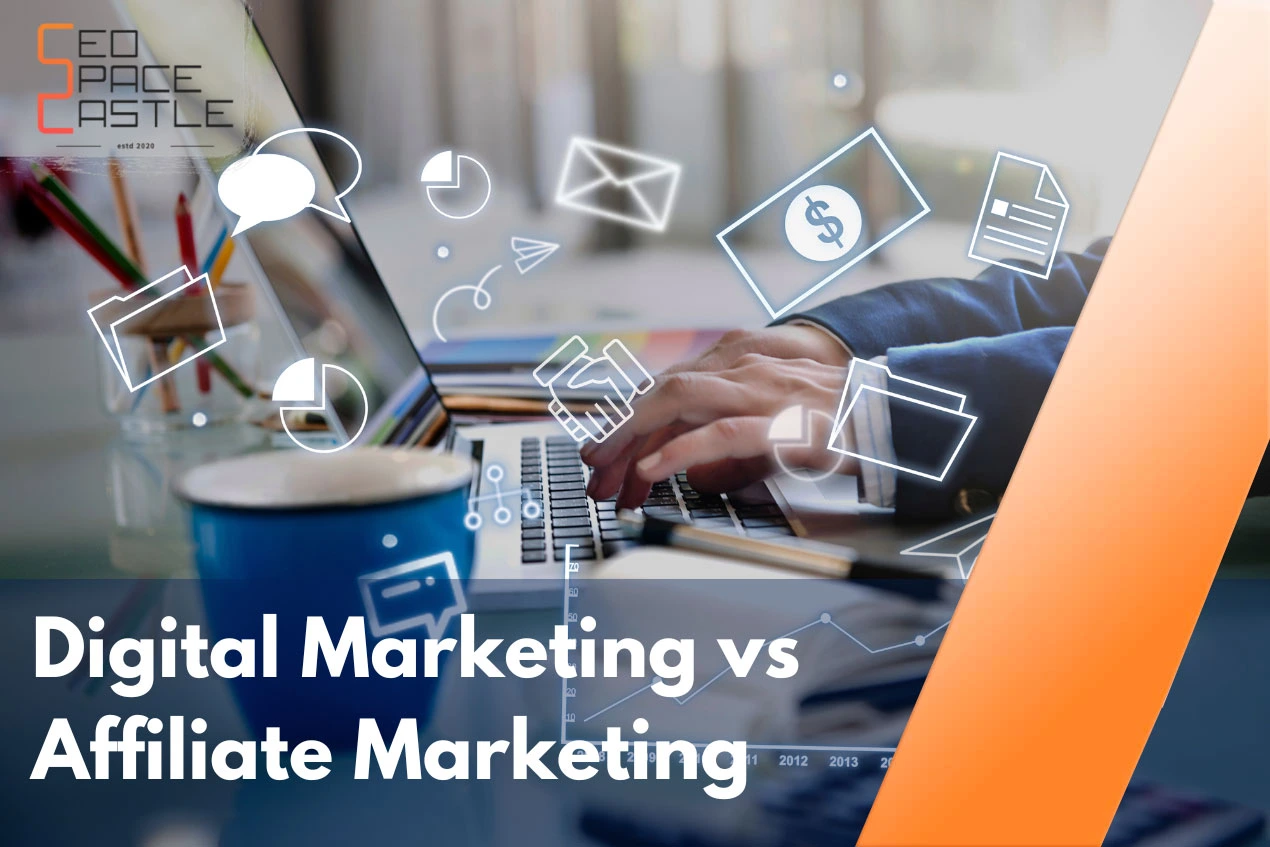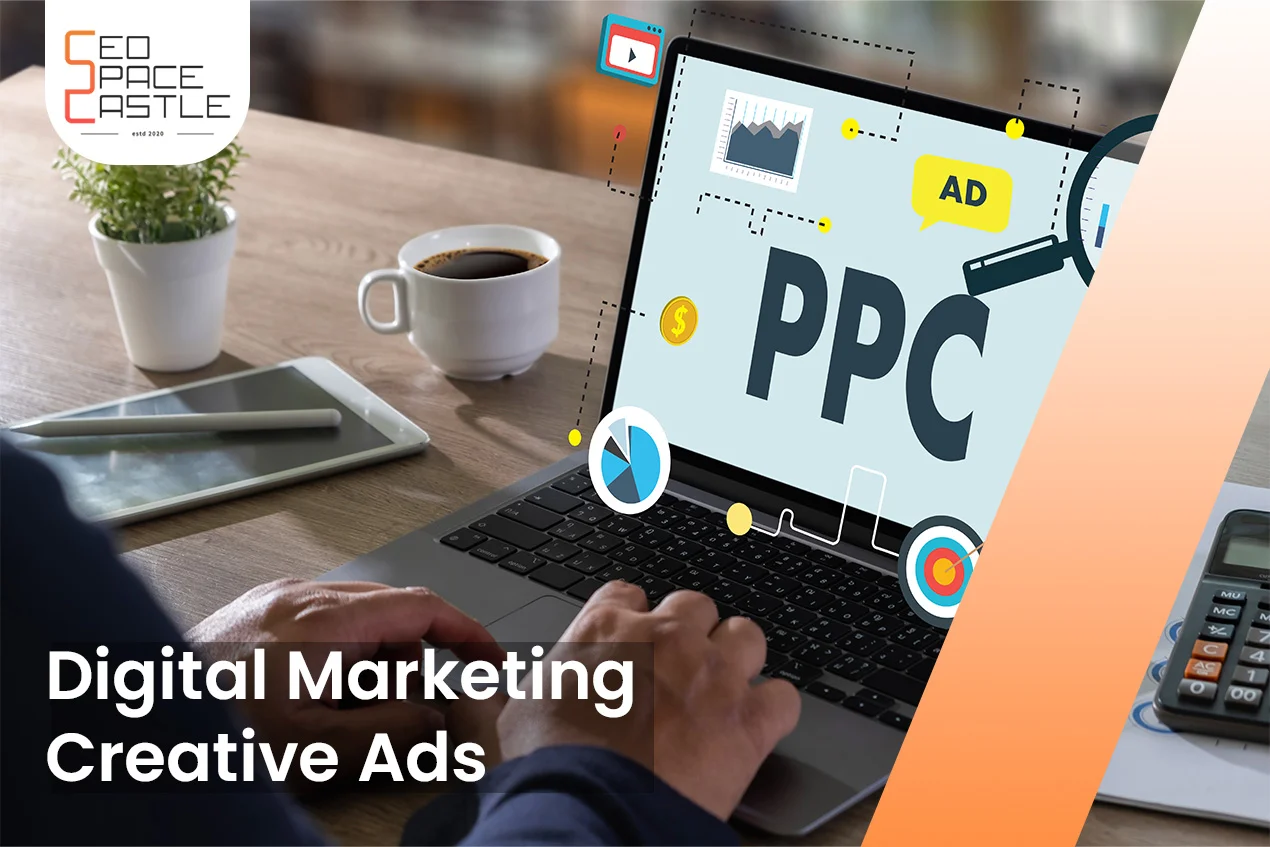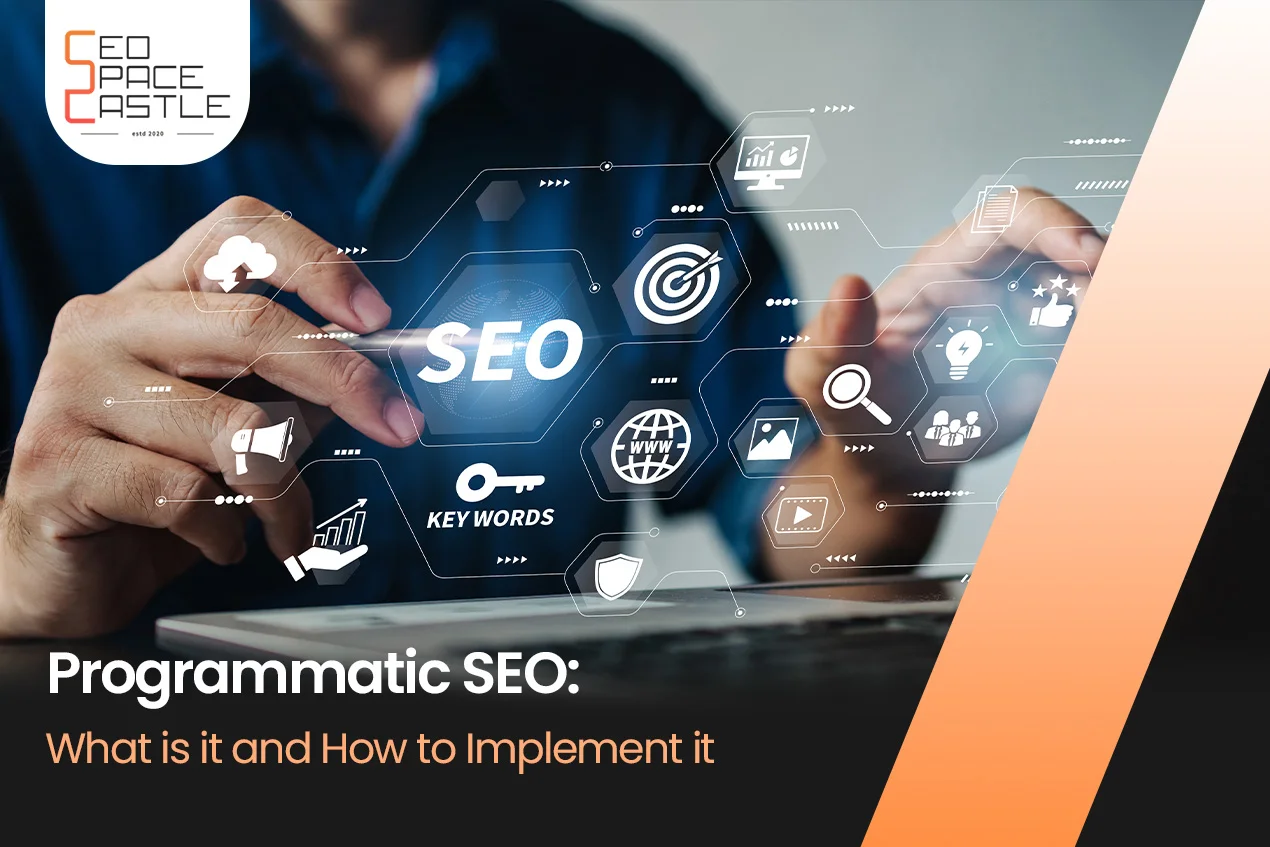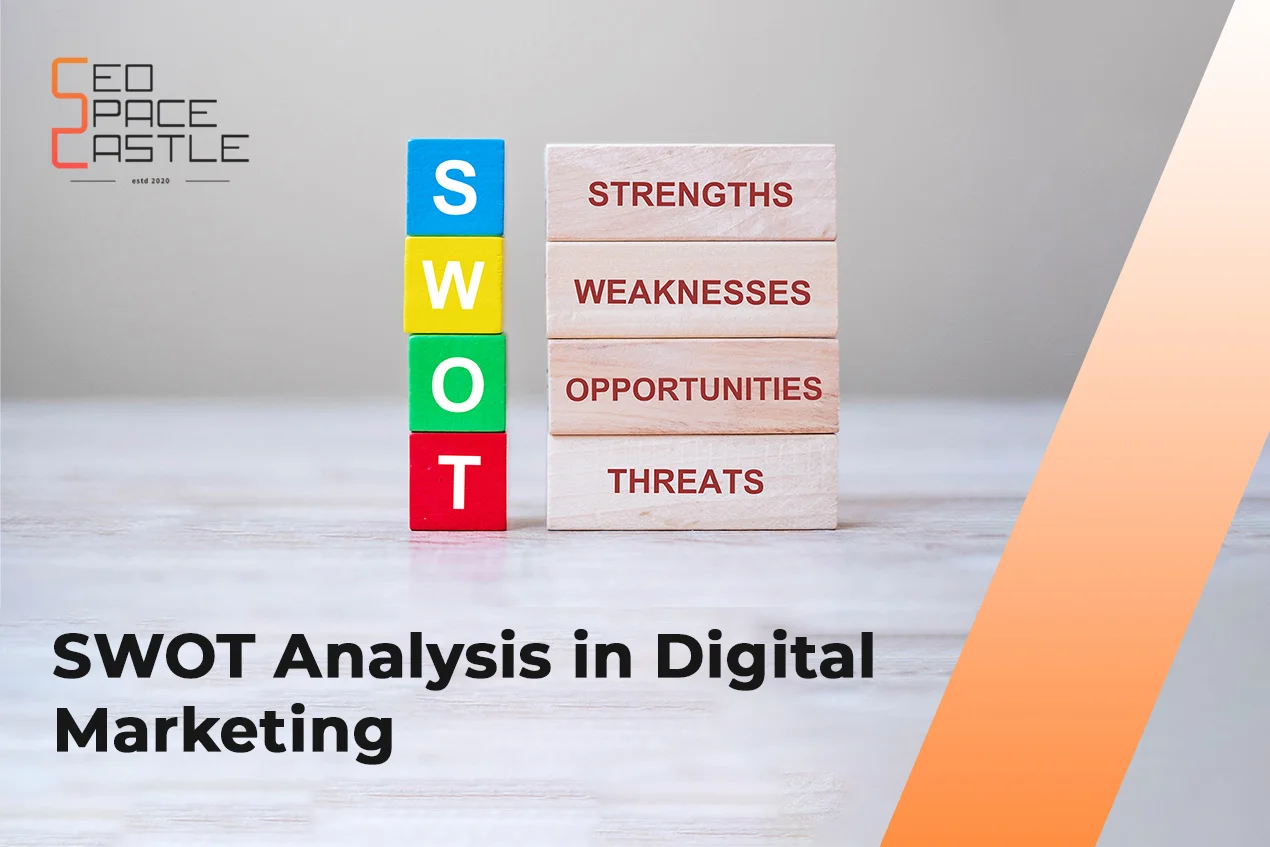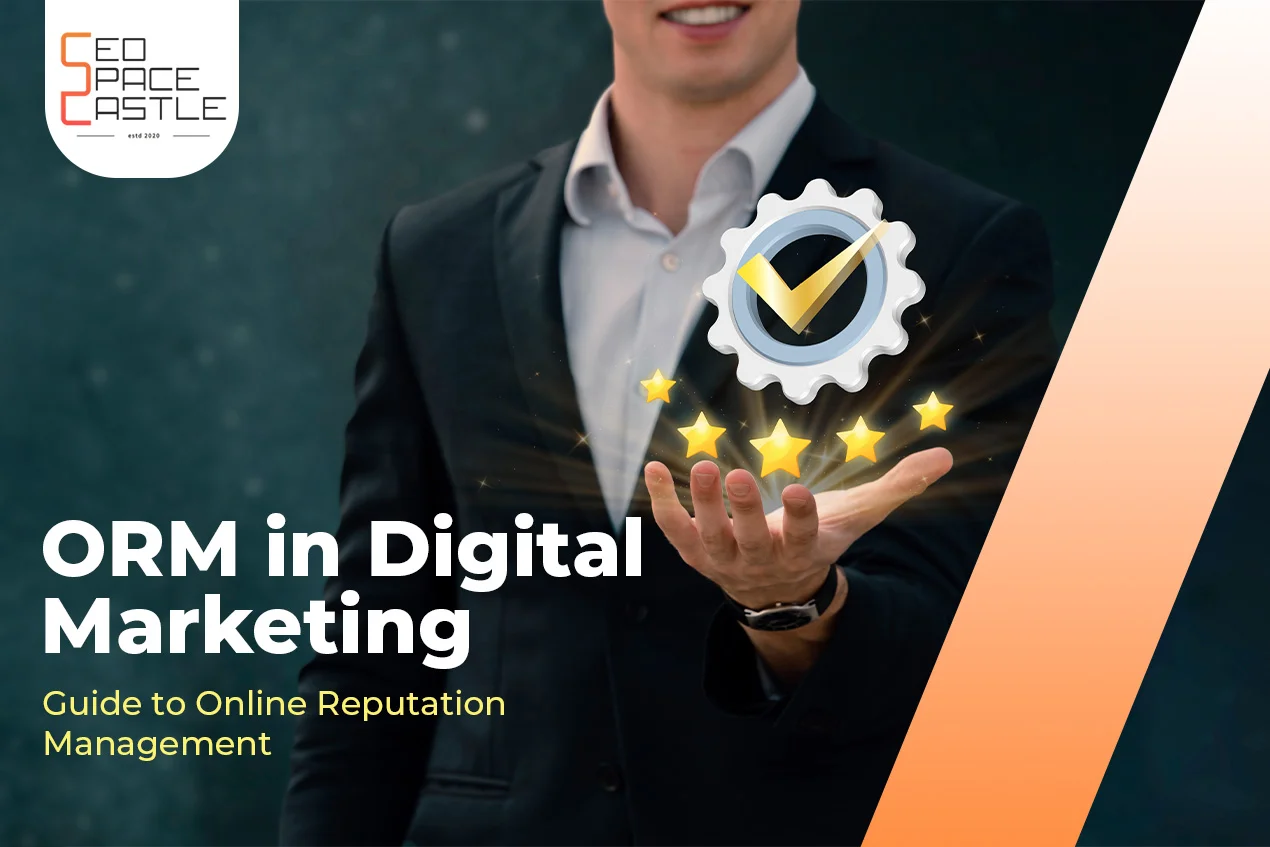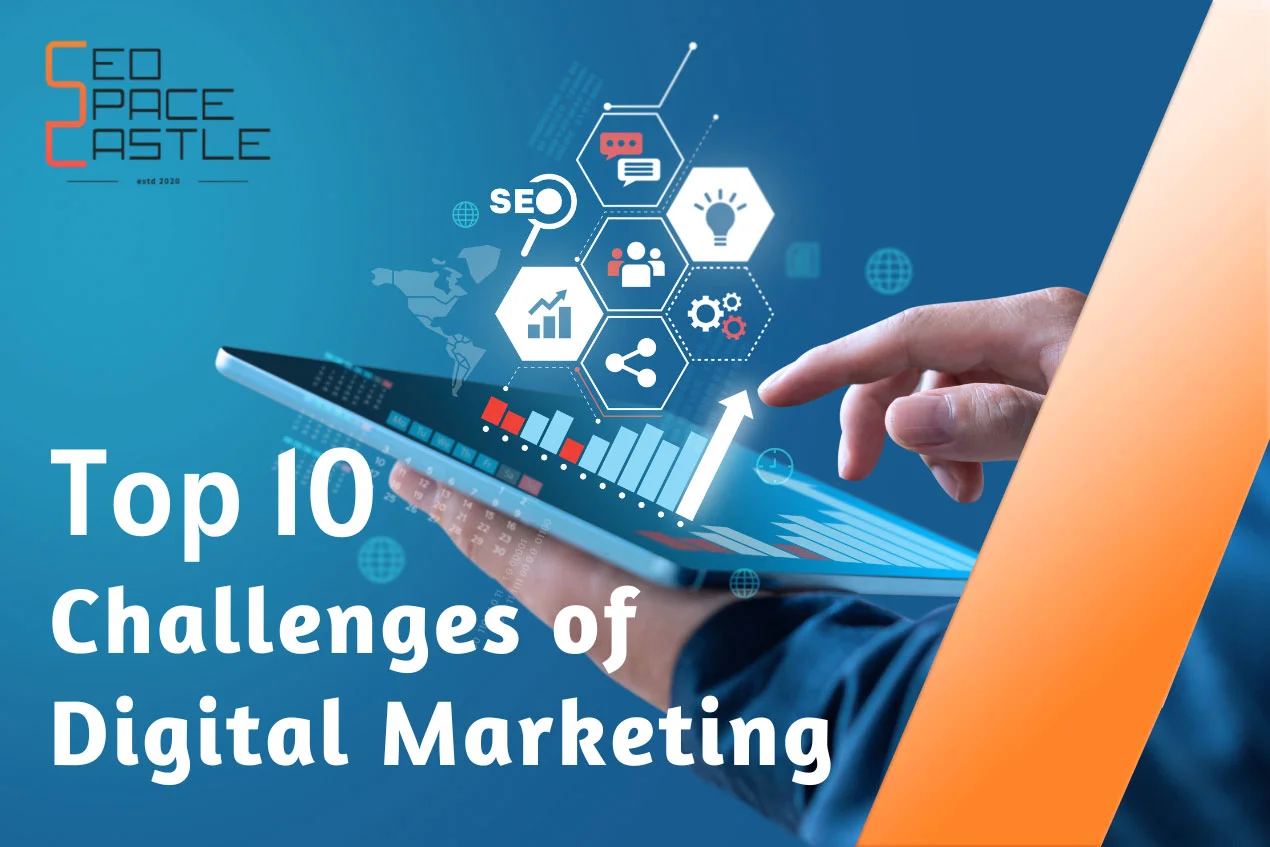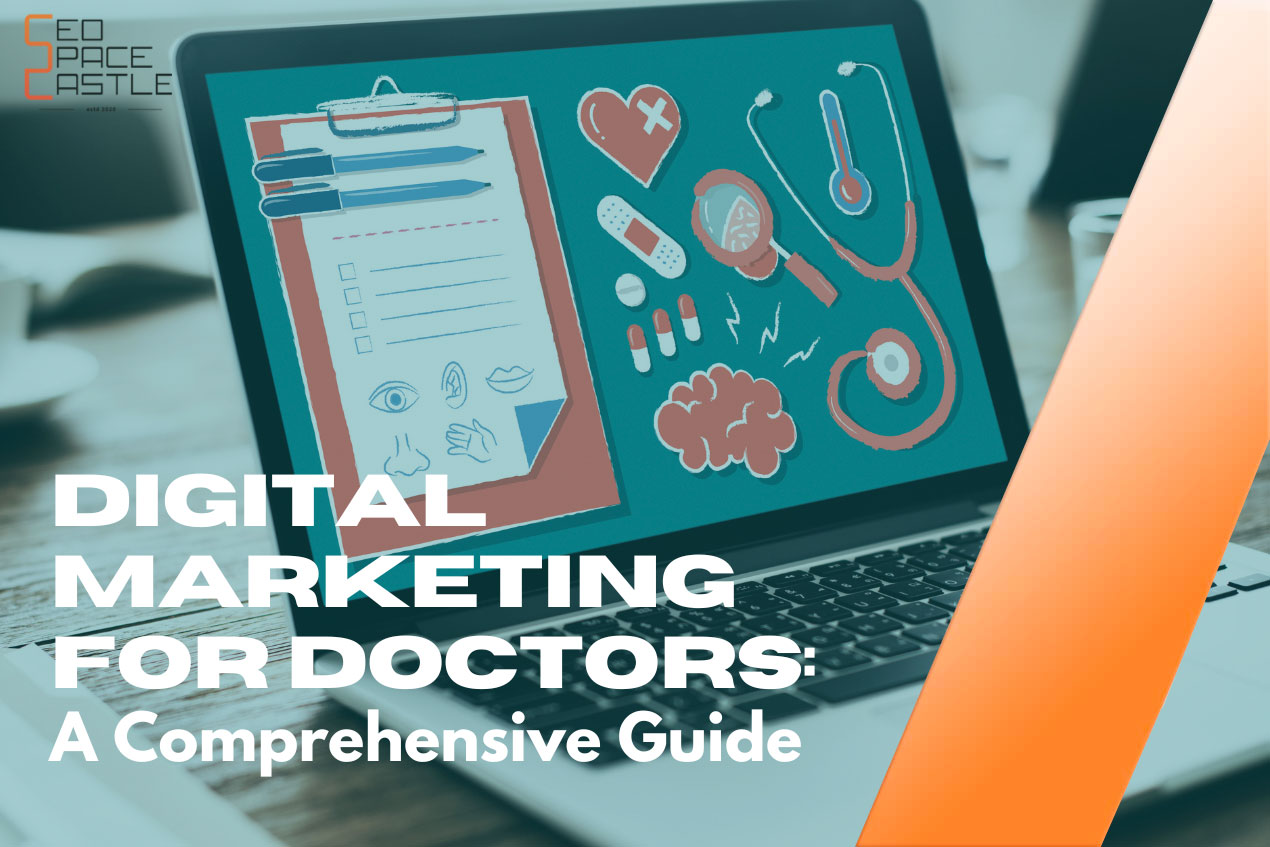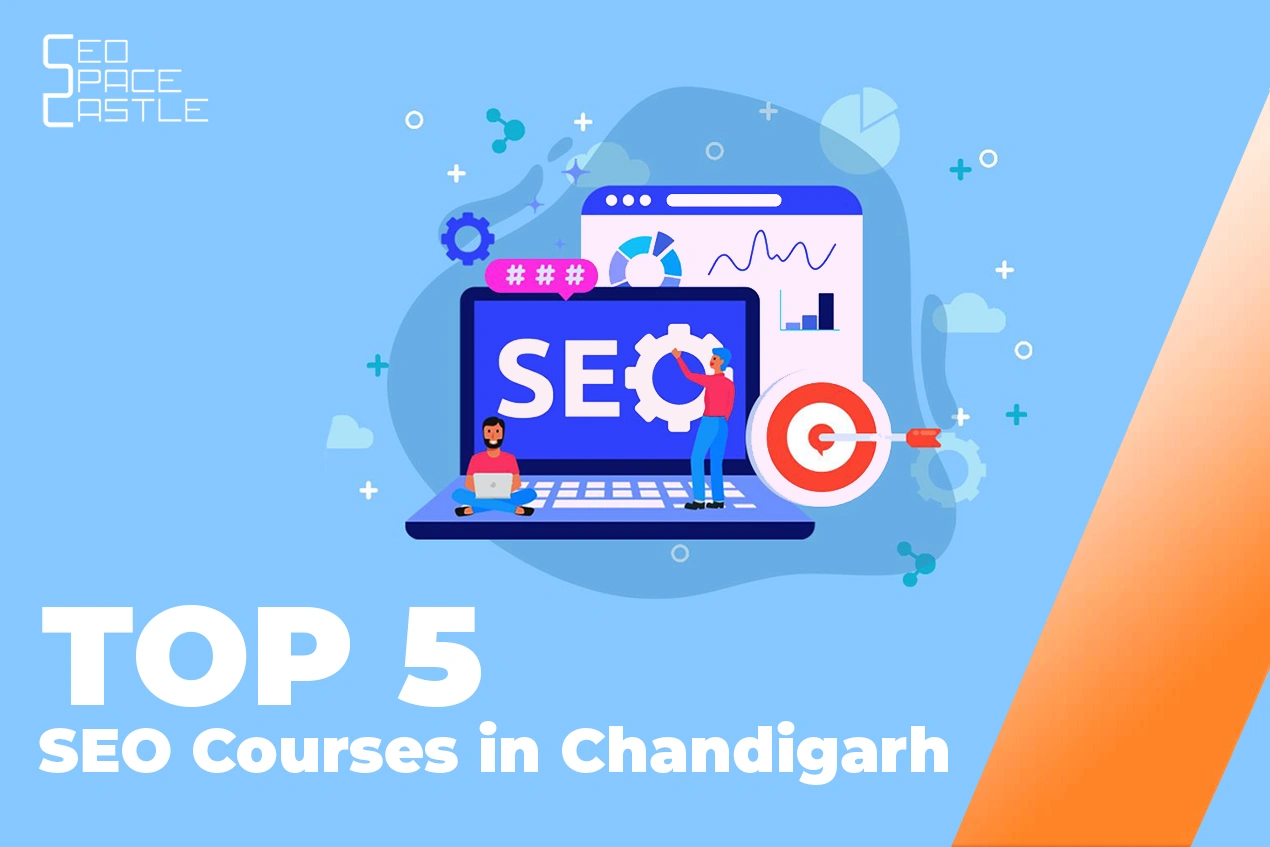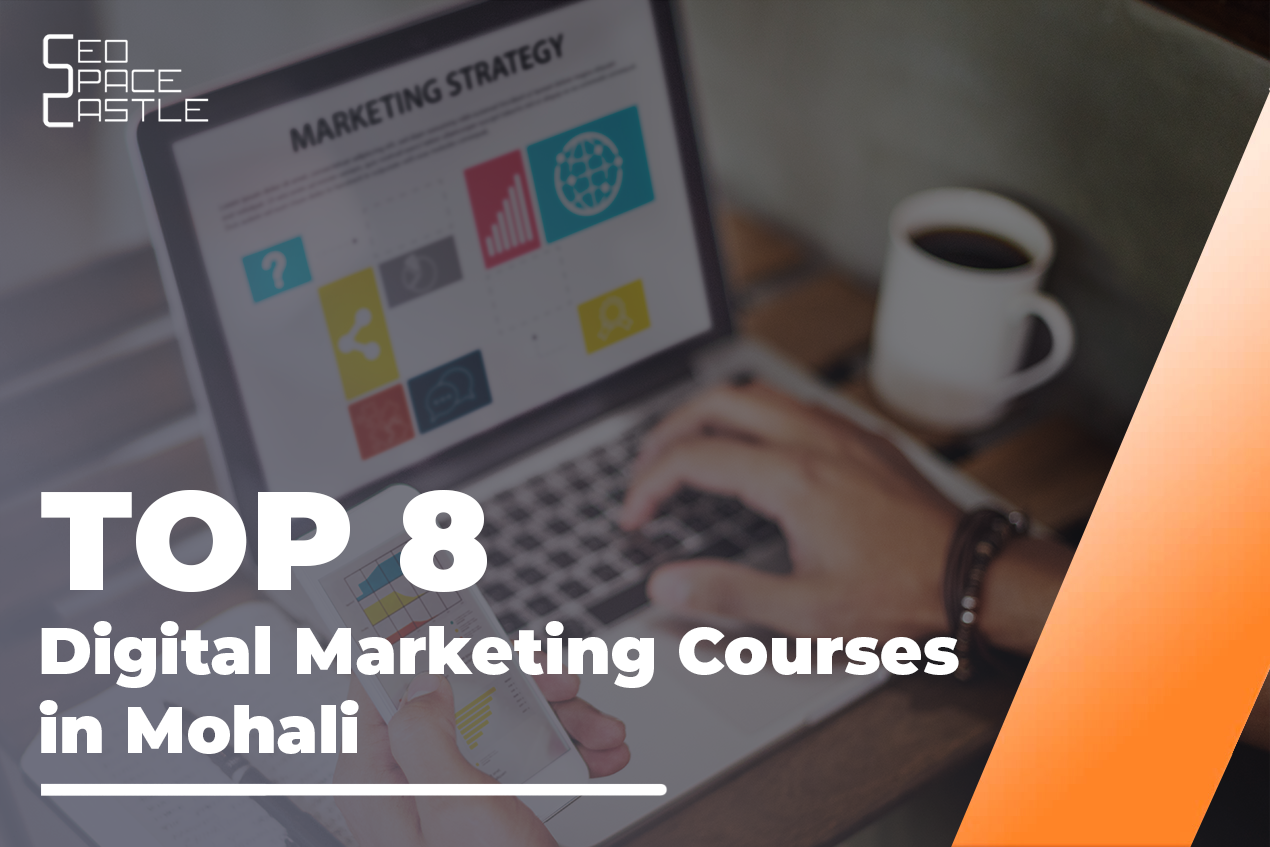In the vast realm of online business, two key players often take center stage: digital marketing vs affiliate marketing. These terms are thrown around frequently, but understanding their nuances is crucial for anyone seeking success in the dynamic world of online commerce.
Digital marketing involves using online channels and strategies to promote and advertise products or services, aiming to reach and engage with a target audience. It encompasses a spectrum of channels, from Search Engine Optimization (SEO) and Social Media Marketing (SMM) to Email Marketing and Pay-Per-Click (PPC) advertising. The primary objective? To amplify a brand's presence, engage with the target audience, and drive conversions.
Let's now focus on affiliate marketing, which is a cooperative effort between affiliates and merchants. Merchants provide affiliates with unique links to promote products, and affiliates earn a commission for every sale or action generated through these links. It's a symbiotic relationship where success is shared, making it a popular choice for those looking to monetize their online presence.
In the upcoming sections, we'll delve deeper into the difference between affiliate and digital marketing, drawing clear lines of distinction and highlighting where these two strategies converge. So, fasten your seatbelt as we embark on a journey through the digital marketing landscape, unraveling the mysteries that lie between affiliate and digital marketing.
Table of Contents
- What Is Digital Marketing?
- What Is Affiliate Marketing?
- Types of Affiliate Marketing
- Digital Marketing vs Affiliate Marketing: Major Differences
- Choosing the Right Path For Your Business
- Conclusion
- Frequently Asked Questions
What Is Digital Marketing?
Digital marketing stands as the versatile architect shaping the online presence of businesses. It's not just a buzzword; it's a comprehensive approach that harnesses various channels and strategies to propel brands into the digital spotlight. Following are the major channels and strategies for digital marketing:
1.) SEO (Search Engine Optimization): Imagine your business as a hidden gem waiting to be discovered. SEO helps to optimizing your online content to climb the ranks of search engine results. Keywords, meta tags, and quality content are the guiding stars in this quest for visibility.
2.) PPC (Pay Per Click): If SEO is the map, PPC is the fast track. Paid advertising on search engines ensures your brand appears prominently when users are actively searching for related products or services.
3.) Social Media Marketing (SMM): In the era of likes, shares, and retweets, social media has become the bustling marketplace where brands interact with their audience. Platforms like Facebook, Instagram, Twitter, and LinkedIn are not just social networks; they are powerful tools for brand building, engagement, and community development.
4.) Email Marketing: It's a personalized approach to nurture leads, build relationships, and convert prospects into loyal customers. Crafting compelling newsletters and targeted campaigns is the key to unlocking the potential of this channel.
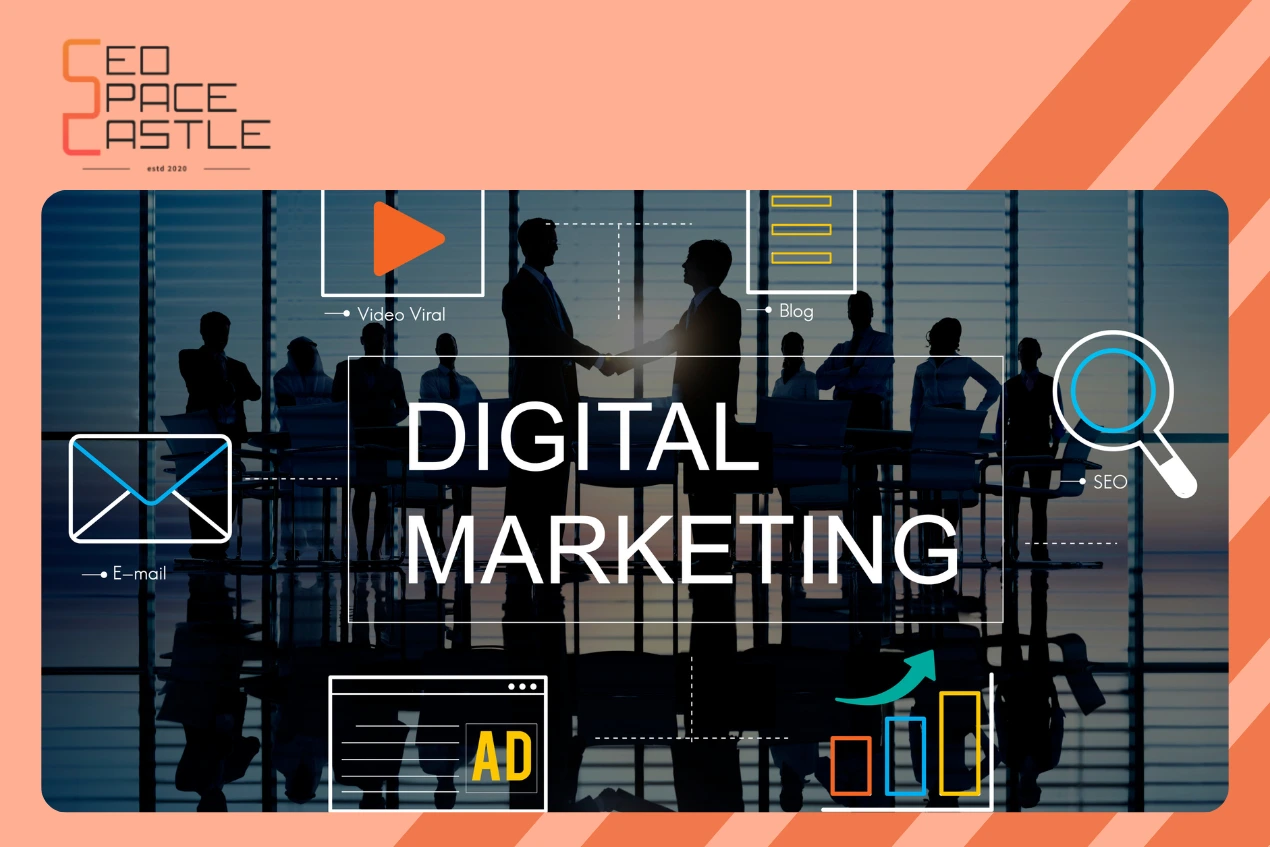
What Is Affiliate Marketing?
At its essence, affiliate marketing is a performance-based strategy where merchants enlist the help of affiliates to promote their products or services. Affiliates, in turn, earn a commission for each sale or action generated through their promotional efforts. It's a win-win scenario, where merchants expand their reach, and affiliates monetize their online influence.
1.) Role of Affiliates: Affiliates play a pivotal role as the driving force behind the promotion. They leverage various online channels such as blogs, social media, or websites to showcase the merchant's products to their audience. Their success is directly tied to their ability to create compelling content and drive conversions.
2.) Role of Merchants: Merchants, on the other hand, provide affiliates with unique tracking links that identify the source of each sale or action. They also handle the logistics, including order fulfillment and customer service. The merchant benefits from increased visibility and sales without the upfront costs of traditional advertising.
Types of Affiliate Marketing
Affiliate marketing has evolved into a multifaceted ecosystem, offering various strategies for both merchants and affiliates to collaborate and generate revenue. Here are some prominent types of affiliate marketing:
1.) Pay-Per-Sale (PPS): In the PPS model, affiliates earn a commission when the referred customer makes a purchase. It's one of the most common and straightforward types of affiliate marketing.
2.) Pay-Per-Click (PPC): With PPC affiliate marketing, affiliates earn a fee based on the number of clicks generated through their referral links, regardless of whether the referred users make a purchase.
3.) Pay-Per-Lead (PPL): PPL involves affiliates earning commissions for generating leads. This could be in the form of sign-ups, trial subscriptions, or other predefined actions by the referred users.
4.) Influencer Marketing: Leveraging the power of influencers, this type involves influencers promoting products or services through their platforms, earning commissions for sales generated through their unique affiliate links.
5.) Coupon and Deal Sites: Affiliates in this category focus on promoting special deals, discounts, and coupons. Users who make purchases using these promotions contribute to the affiliate's earnings.
6.) Content Marketing Affiliates: Bloggers, vloggers, and content creators utilize this type by integrating affiliate links naturally within their content. They earn commissions for conversions resulting from their audience's engagement.
7.) Niche-Specific Affiliates: Focused on specific niches or industries, these affiliates cater to targeted audiences, providing valuable content and recommendations within their niche.

Digital Marketing vs Affiliate Marketing: Major Differences
In the dynamic arena of online commerce, differences between affiliate marketing and digital marketing become even more apparent when considering additional differences. Let's amalgamate insights from both perspectives to paint a comprehensive picture.
1.) Executor of the Strategy
Digital Marketing: It can be executed by the product owner or the seller directly, giving businesses direct control over their online campaigns.
Affiliate Marketing: Exclusive to third parties, allowing individuals or entities to take on the role of affiliate marketers, promoting products on behalf of the merchant.
2.) Motivation Behind Engagement
Digital Marketing: Primarily driven by the desire to boost traffic and enhance brand awareness, aiming for a broader market presence.
Affiliate Marketing: Focused on swift commission generation for affiliates through the promotion and sale of specific products.
3.) Scope and Tactics
Digital Marketing: Encompasses a wide array of strategies and tools employed by businesses to engage, communicate, and sell to their target audience with ecommerce SEO.
Affiliate Marketing: Incorporates digital marketing techniques but with a distinct focus on affiliate-driven commissions based on product sales.
4.) Nature of Activities
Digital Marketing: Involves multifaceted activities, including customer needs analysis, promotion, marketing, campaign measurement, and improvement.
Affiliate Marketing: Primarily centers around the promotion of products or services to earn commissions, streamlining the focus on driving sales.
5.) Skill Requirements
Digital Marketing: Demands skills such as SEO, content marketing, data analysis, and video marketing for effective execution.
Affiliate Marketing: Requires similar skills as a digital marketer but places a specific emphasis on persuasion and direct response copywriting to drive affiliate success.
6.) Dependency on Audience Reach
Digital Marketing: While audience reach is vital, the scope is broader, encompassing various channels and strategies for a more diverse approach.
Affiliate Marketing: Relies more heavily on the principle of audience reach, with the success of affiliates directly tied to their ability to engage and influence their specific audience.
7.) Ownership of Products or Services
Digital Marketing: Often involves marketing products or services directly created by the business or working in collaboration with a product owner.
Affiliate Marketing: Doesn't require ownership of a product or service; instead, it involves promoting and selling on behalf of those who do.
8.) Control Dynamics
Digital Marketing: Offers businesses full control over the content, messaging, and branding of their campaigns, ensuring a consistent and aligned online presence.
Affiliate Marketing: Involves shared control, as affiliates independently create content and promotional strategies, presenting a collaborative but potentially diverse brand representation.
9.) Investment Flexibility
Digital Marketing: Requires upfront investments in advertising, tools, and content creation, with costs varying based on the chosen channels and strategies.
Affiliate Marketing: Operates on a performance-based model, allowing merchants to allocate budgets more flexibly as payments are tied to actual results.
10.) Brand Building vs. Sales Focus
Digital Marketing: Places a significant emphasis on brand building, fostering long-term relationships with customers and establishing a brand identity in the digital space.
Affiliate Marketing: Primarily geared towards driving sales, emphasizing short-term gains through the promotion and sale of products.
11.) Risk Distribution
Digital Marketing: Bears the risk of upfront investments, with uncertain returns until campaigns are executed and results measured.
Affiliate Marketing: Shares the risk between merchants and affiliates, with affiliates taking on the promotional efforts and merchants paying for performance.
Choosing the Right Path For Your Business
The choice between affiliate marketing vs digital marketing is similar to selecting the most fitting path through a dense forest. Each avenue presents its unique challenges and opportunities, and aligning the chosen strategy with business goals is pivotal for success. Let's explore the factors that businesses should consider when standing at this crossroads.
1.) Business Goals and Objectives:
Deciding between digital marketing and affiliate marketing hinges on understanding your business goals. If your aim is to build a long-lasting brand presence, foster customer relationships, and engage in comprehensive online promotion, then digital marketing is the route to explore. On the other hand, if immediate results in terms of sales and conversions are a priority, especially leveraging the reach of external influencers, then affiliate marketing might be the more suitable path.
2.) Budgetary Considerations:
Your budgetary constraints play a significant role in determining the most viable marketing strategy. Digital marketing involves upfront costs for advertising, tools, and content creation, necessitating a budget aligned with the chosen digital channels. Conversely, affiliate marketing offers flexibility with a performance-based model, allowing businesses to manage budgets more efficiently as payments are tied to actual results.
3.) Control Preferences:
Consider your preferences when it comes to control over branding, messaging, and the overall online presence of your campaigns. Digital marketing appeals to those who value complete control, enabling businesses to steer their brand identity with precision. On the other hand, affiliate marketing attracts businesses comfortable with shared control, allowing affiliates to independently create content and promote products with their unique styles.
4.) Speed of Results:
The speed at which you expect to see results is a crucial factor in your decision-making process. Digital marketing may take time for campaigns to gain traction, build brand awareness, and yield measurable results. If you're seeking a quicker route to implementation and potential swift results, affiliate marketing provides the agility for affiliates to promptly initiate promotional activities.
5.) Target Audience Dynamics:
Understanding your target audience dynamics is paramount in choosing the right marketing path. Digital marketing is ideal for businesses looking to appeal to a broad audience, engaging in brand building across diverse demographics. Conversely, affiliate marketing is suited for those targeting niche audiences, leveraging the specific interests and influence of affiliates to drive targeted sales.
6.) Long-Term vs. Short-Term Impact:
Evaluate whether your focus is on establishing a lasting impact on brand awareness and customer loyalty over the long term or if you're prioritizing short-term gains. Digital marketing is designed for sustained success, contributing to long-term brand building. In contrast, affiliate marketing is primarily focused on short-term gains through quick commissions for sales, with potential trade-offs in long-term brand building.
Conclusion:
As we conclude this exploration, it becomes evident that digital marketing vs affiliate marketing is not about declaring one superior to the other, but rather understanding their unique strengths. Ultimately, the decision between digital and affiliate marketing is a strategic one, and depends upon the various factors as mentioned above. In this dynamic landscape, businesses may even find merit in embracing both as well as performance marketing, harmonizing the broad strokes of digital marketing with the targeted movements of affiliate partnerships.



